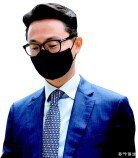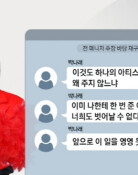[Opinion] Tenure
The tenure system came under the national spotlight when Korea Advanced Institute of Science and Technology President Suh Nam-pyo rejected 39.5 percent of professors who applied for tenure last year. Few people knew about the system because it was tenure in name only. When the high rejection rate caused an uproar in academia, Suh said, A more rigorous tenure system is an inevitable choice for KAIST to compete with other world-class universities.
American universities introduced tenure to protect academic freedom, in the belief that job security would protect professors against social prejudice and pressure from the government or college authorities. Tenure is also intended to allow professors to seek the truth and protect unpopular majors from elimination. Junior professors burn the midnight oil because they have to go through tenure evaluations. One joke says that when one gets tenure, ones wife is gone. Professors with tenure are recognized and respected as such.
Tenure is becoming a double-edged sword, however. Tenured professors can get lazy since their jobs are guaranteed. Western universities have come up with two solutions to prevent this. First, they can make the tenure evaluation process more rigorous through reviews of research, teaching and service as well as peer review and student rating. Second, they can eliminate tenure. Since the 1980s when the British government of Margaret Thatcher reduced tenure at universities, the trend of reducing tenure has been spreading throughout Europe.
Koreas tenure shock that originated from KAIST has hit this year Seoul National University, Koreas most prestigious institution of higher learning. Among 144 tenure candidates including 81 associate and 63 assistant professors, 33.3 percent or 48 professors were rejected under stricter evaluation standards or voluntarily withdrew their applications. Three of 47 who passed became associate professors with early tenure due to their outstanding research publications. Hopefully, Seoul National takes the lead in showing that a Korean university with a more rigorous tenure selection system can emerge as a world-class academic institution.
Editorial Writer Chung Sung-hee (shchung@donga.com)




![[단독]내란특검 “尹계엄 목적은 민주-한동훈 등 반대 세력 제거”](https://dimg.donga.com/c/138/175/90/1/wps/NEWS/IMAGE/2025/12/04/132897558.1.jpg)

![‘친구’란 말에, 치매 아버지는 고향땅 800평을 팔았다[히어로콘텐츠/헌트①-上]](https://dimg.donga.com/c/138/175/90/1/wps/NEWS/IMAGE/2025/12/14/132961909.1.jpg)
